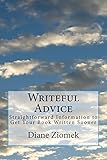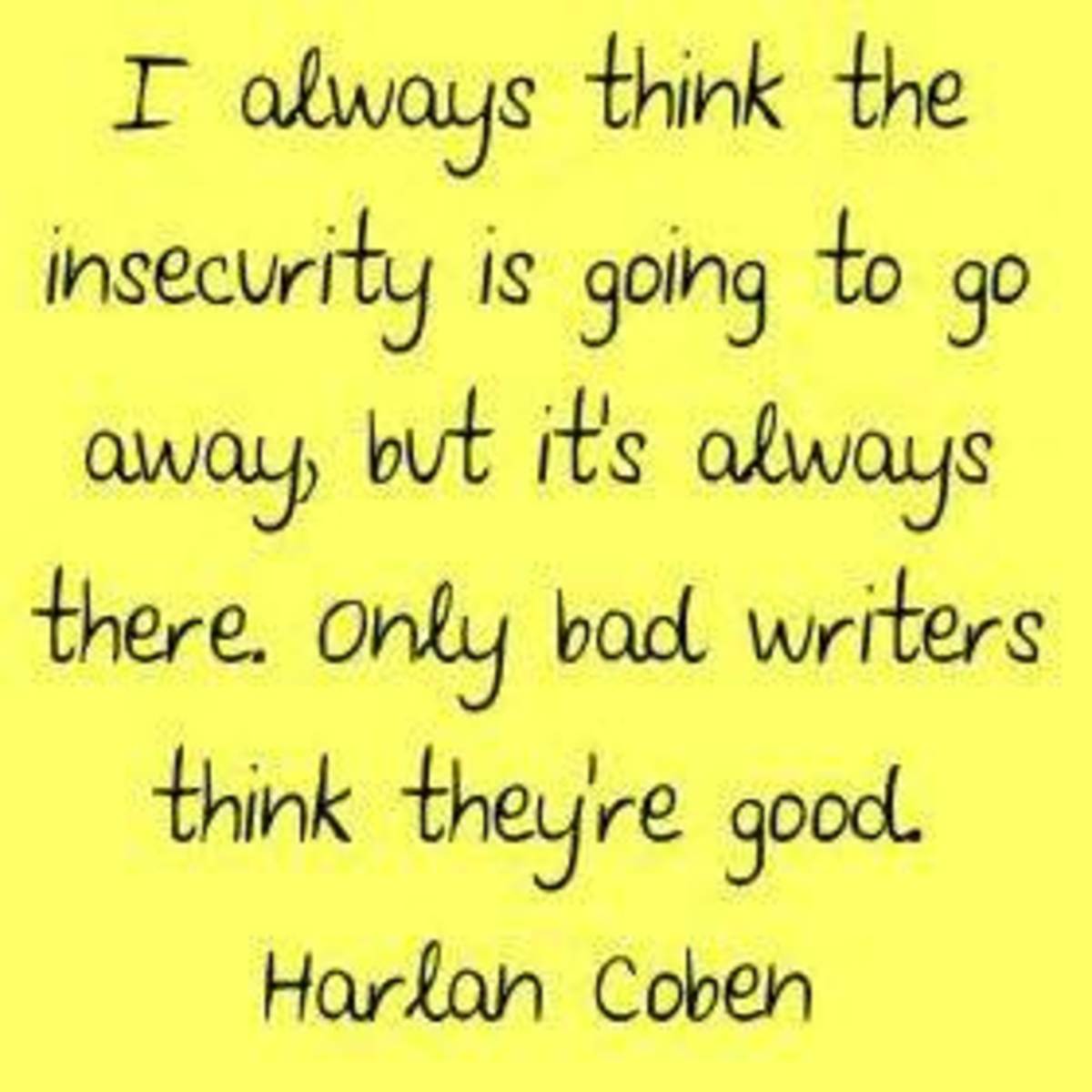- HubPages»
- Books, Literature, and Writing»
- How to Write»
- How to Get Published
Writing and Self-Publishing for Newbies
My First Self-Published Book in the Homemaker Helper Series
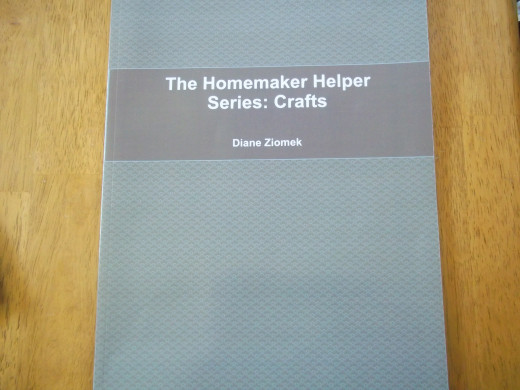
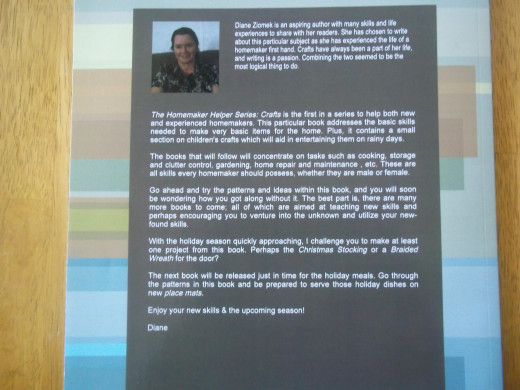
Do You Have What it Takes?
Many dream of being a famous author and making a lot of money from selling millions of copies of their books. While that is a great dream to have (and one many have succeeded attaining) reality does set in quite quickly for new writers.
There is a lot more to becoming a famous author than meets the eye. The writing is often the easiest part; getting your work out there takes a considerable amount of time and effort, especially if taking the traditional route. No matter the route you take, there are some key points to remember. Read on!
What to Write?
Fiction or nonfiction? Do you have an imagination or are you more of a "fact of the matter" person?
Let's start with fiction (something I am personally not very good at - yet). Do you have the ability to think up characters, dialog and settings for your story? If so, you may be well on your way to writing best-selling fiction. I do have to give credit to those who can conjure up people and places, not to mention plots and dialog. Stephen King is my favorite fiction author, and I have read several of his books. Even with all of the reading I have done, when it comes down to me writing a story I seem to get absolutely nowhere. I would like to write fiction one day, but for now I will continue on with what I know.
For those of you who are like me, nonfiction may be better for you. I find it easier to base my writing on my experiences and knowledge I have gained through my 40 plus years. For example, I love to quilt and crochet. I have written articles and designed patterns in both of these areas with ease. It is simply because I know the material and it comes easy to me. I have even been able to design a crochet pattern and visualize what it looked like; then actually make it so I had a picture to include with the pattern. Can you do the same thing?
If you aren't into crafts, don't despair. There are many other areas of expertise you can write about. For example, have you recently lost weight just by changing your eating habits? Share your experience with the world; there is always someone looking for an easy way to lose weight. What about gardening? Are you an avid gardener who has found a way to minimize weeds and problem insects without pesticides and herbicides? Share your knowledge with the world; gardeners everywhere will be very interested in what you have to say.
The main thing to remember with nonfiction is to solve a problem others may be having. if you have an easier or better way to do something, write about it. Someone somewhere will be looking for answers to that problem. If you aren't sure what problems others are having, take a look at the questions being asked on forums or here on HubPages. I have personally written entire Hubs based on the answer to a question asked here.
Editing Poll
When editing, which do you prefer?
What About Editing?
For many, the writing comes easy. Even if it doesn't, persevere and you will soon have an article or e-book you can be proud of. Before you submit it to a website or publishing site, you must make sure it is of top quality. This means editing for mistakes, formatting and even typos. Even the most proficient writer can have mistakes - it does happen. Spell check does not tell you that "is" was used instead of "it" since they are both proper words. In order to notice errors such as that, it is advisable to read the manuscript out loud. I know it sounds silly, but believe me it does work. I have caught errors I hadn't noticed while reading to myself.
If you aren't sure of your editing abilities, have a friend or acquaintance read your manuscript. Depending on the subject matter, you may also request a professional editor to do the final pass, just to make sure all is in order. Depending on the groups you belong to, some members will read a manuscript for you with the same favor asked in return. This way it does not cost anyone anything and you can get (and provide) an objective opinion.
Smashwords Guide
Self-publishing: Is it for you?
For those who have a good grasp on the subject matter, have had manuscripts edited and tweaked, there is no reason to avoid self-publishing.
Keep in mind however, there is a lot of work involved whether or not you self-publish. Personally I took the self-publishing route as I did not want to wait for responses to query letters, editors trying to change my theme or the simple fact it can take over a year to finally see a book in print going the traditional route.
If you are prepared to work hard on doing all of your own marketing, building a list of followers and doing the majority of the work yourself, then self-publishing is the answer. Even those who take the traditional route are often surprised at how much work they still have to do in terms of marketing. I look at it this way: if I am expected to do most of the work, why not do all of it so I can see results faster and get a bigger slice of the pie?
The advance the big publishing companies give you is nice, but you must remember they will not pay you any more in royalties until they have recouped every penny from that advance. For example, if they pay you an advance of $25,000 you will not see any more money until they have sold enough copies of your book to recover that advance. If your royalty on each book is $1.00 it will take 25,000 copies sold to recover that. Anything above and beyond that will then start being added to your royalty cheques.
Self-publishing with POD (print on demand) sites such as CreateSpace or Lulu is quite simple. They are free to use and the only time you may incur extra costs is if you order their additional services (such as editing or widespread distribution). Remember, these are extras and you are not obligated to use them. Both companies provide excellent quality print books; but I do have to say the royalties with CreateSpace are a little higher than Lulu. To publish with either of these, all you have to do is create an account with them (remember, it is free to do so). They will walk you through the steps of submitting your manuscript, uploading a cover and pricing your book.
If you choose to not go with the POD route, you may publish via Kindle, Lulu, Smashwords, BookTango and more. E-book sales are increasing and not tapping into the e-book market would be, well, silly. I have a combination of both e-books and POD available to maximize my exposure. I recommend using both platforms to increase your sales and exposure, along with Facebook and Twitter (that is an entire article in itself).
Simple Yet Effective
So Much More to be Said
Volumes could easily be written on the subject of writing and self-publishing (and they have; just check your local bookstores or do a search on Amazon). My way may not be the best way, but it worked for me.
In order to say all that needs to be said, an article just doesn't allow for it. The resources available are plentiful and I will one day add to that list. Even if you are not 100 percent sure of your writing abilities, there is no harm in trying. Start with articles to get a feel for your niche and interests and accept feedback from others. The more you write the more you improve (so be prepared for constructive criticism). Others have been down the road you are starting, so learn from their mistakes and triumphs.
Good luck in your career as a self-published author!
Cover #2
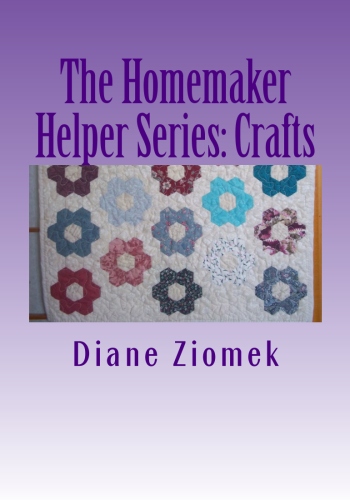
Update October 15, 2013
A picture is worth a thousand words; and the cover does sell books.
When I wrote this article I had published on Lulu (photos at the top are of my first book in The Homemaker Helper Series). I have since revamped the cover and some of the content within the pages. For a look at the new look, see the photo on the right. It is much more appealing than the original cover, and it showcases a quilt I spent many hours hand piecing together.
If you think your cover is not important, think again. Would you buy the book at the top of the page, or the one on the right?


